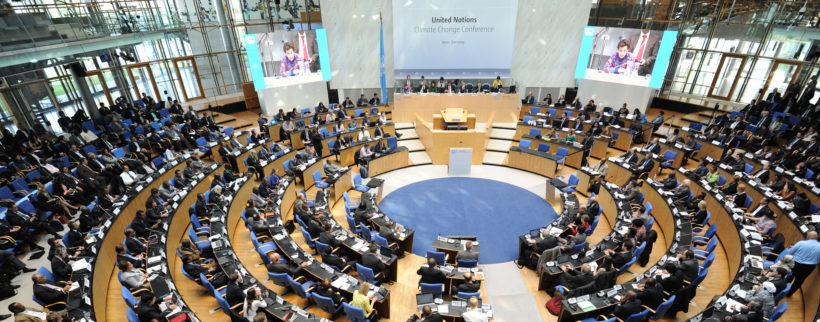Recent climate statistics regarding the steady rise in global temperature dramatized the need for governments around the world to come up with a solution to cut emissions and control global warming.
This is what took most of the discussions at the UN climate change conference in Lima, Peru.
Global warming brings record-breaking temperatures
According to the latest report from the World Meteorological Organization, 2014 is the hottest year on record. Global temperatures for 2014 are higher by 1.03 degrees Fahrenheit than the 1961 to 1990 average.
This figure is culled out from the compendium “Status of the Global Climate” prepared by the WMO. It was released during the U.N. climate talks in Lima. Data for the report was taken from the National Oceanic and Atmosphere Administration, the United Kingdom’s Met Office and NASA.
So that scientists can get a historical context of the findings, they compare temperatures with ‘normal’ temperatures averaged through a 30-year period, such as the period of 1961 to 1990.
At its present condition, the world is on a course for its very hottest years. Based on records, 2014 was the hottest, but if environmental measures are not immediately deployed, the succeeding year may even be hotter.
The United Nations attempts to reinforce Global Warming call-to-action in Lima
The United Nations agency has heightened the sense of urgency around climate change negotiations in Lima. Initial estimates provided by the World Meteorological Organization show that global average land and sea surface temperatures for the first 10 months of 2014 have risen higher than the previous records.
These WMO findings correlate with the records of the US National Oceanic and Atmospheric Administration (NOAA) as well as other science agencies. This indicates that indeed, 2014 is the year that broke all the heat records of previous years.
“Fourteen of the 15 warmest years on record have all occurred in the 21st century,” says Michel Jarraud, WMO’s secretary-general. “What we saw in 2014 is consistent with what we expect from a changing climate,” he adds.
Global Warming will continue to impact the lives of all residents of the world
“Record-breaking heat combined with torrential rainfall and floods destroyed livelihoods and ruined lives,” Jarraud continues. “What is particularly unusual and alarming this year are the high temperatures of vast areas of the ocean surface, including in the northern hemisphere,” he explains.
The continuing escalation of global warming and greenhouse gas emission, due to the burning of fossil fuels, has resulted in a succession of years with record-breaking high temperatures. Since the start of the 21st century, the year 2014 is no exception with regards to the escalation of temperature.
This new WMO global warming evidence dampened the optimism expressed by negotiators from developed countries at the start of the Lima conference.
Ocean temperatures on the rise
The report says that the cause of global warming including that of 2014 were the oceans. All the oceans experienced the warmest temperatures ever recorded. Climate scientists found that global sea surface temperatures rose by 0.45 degree Celsius above the 1961 to 1990 normal.
As the oceans heat up, the water molecules expand, which causes the sea levels to rise. This is what happened when the sea levels rose in early 2014 at a record high.
Originally published on Australian Solar Quotes:
Global Warming the cause of the hottest year on record 2014



Leave a Reply